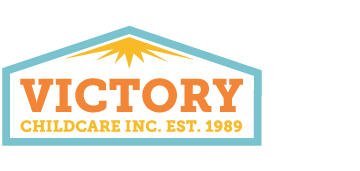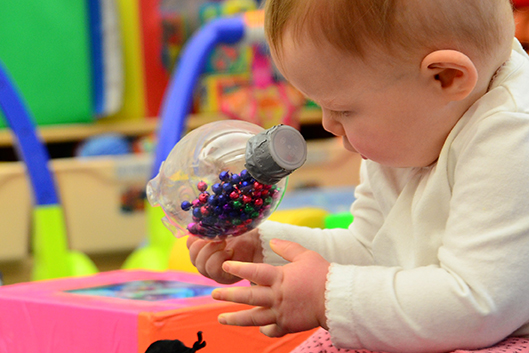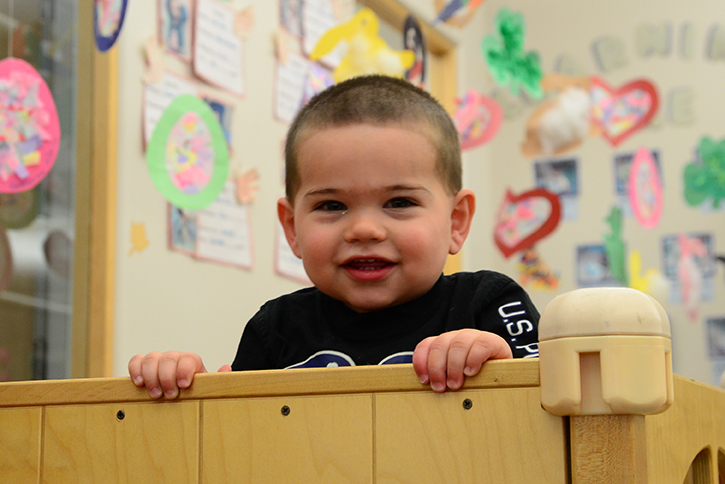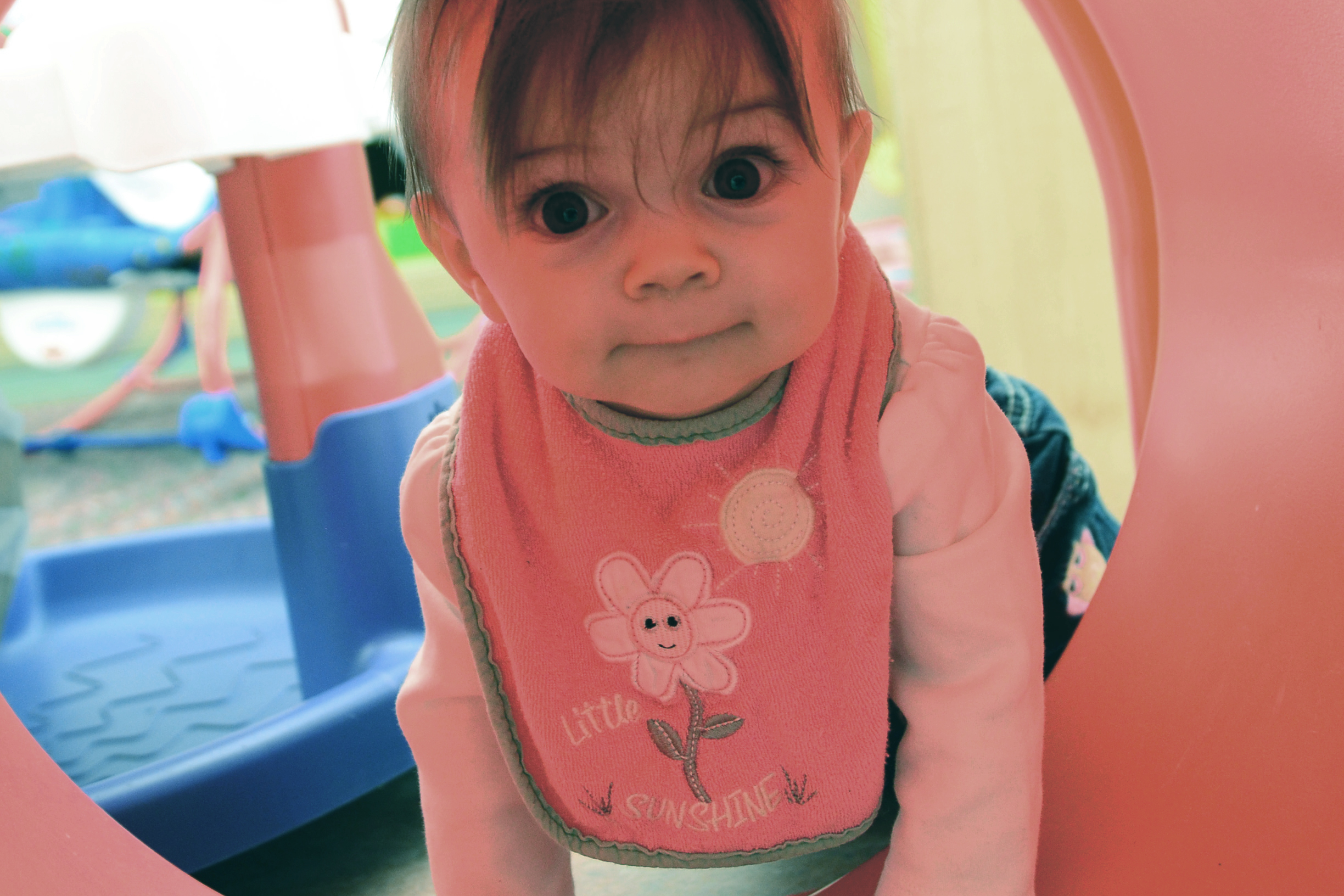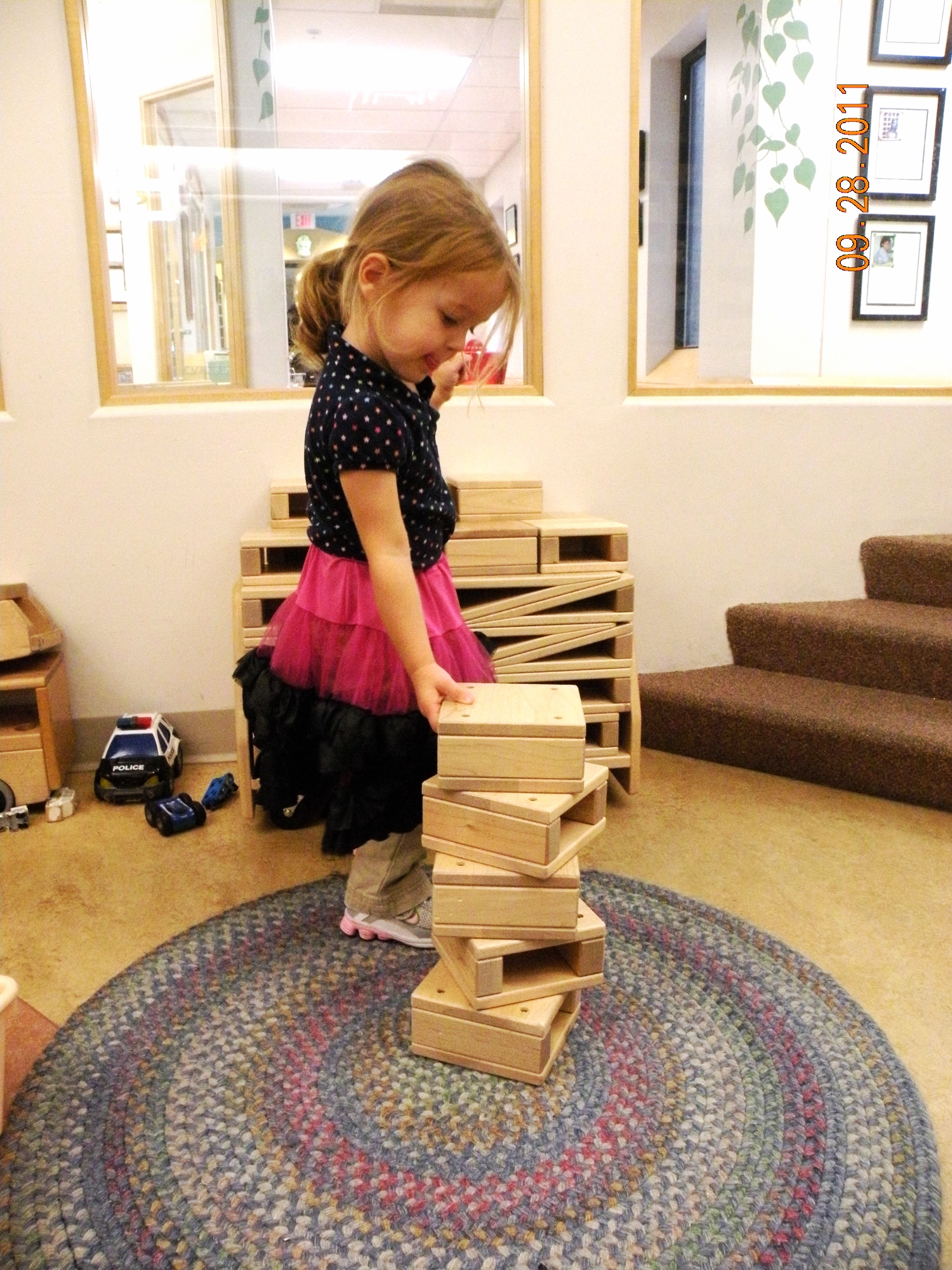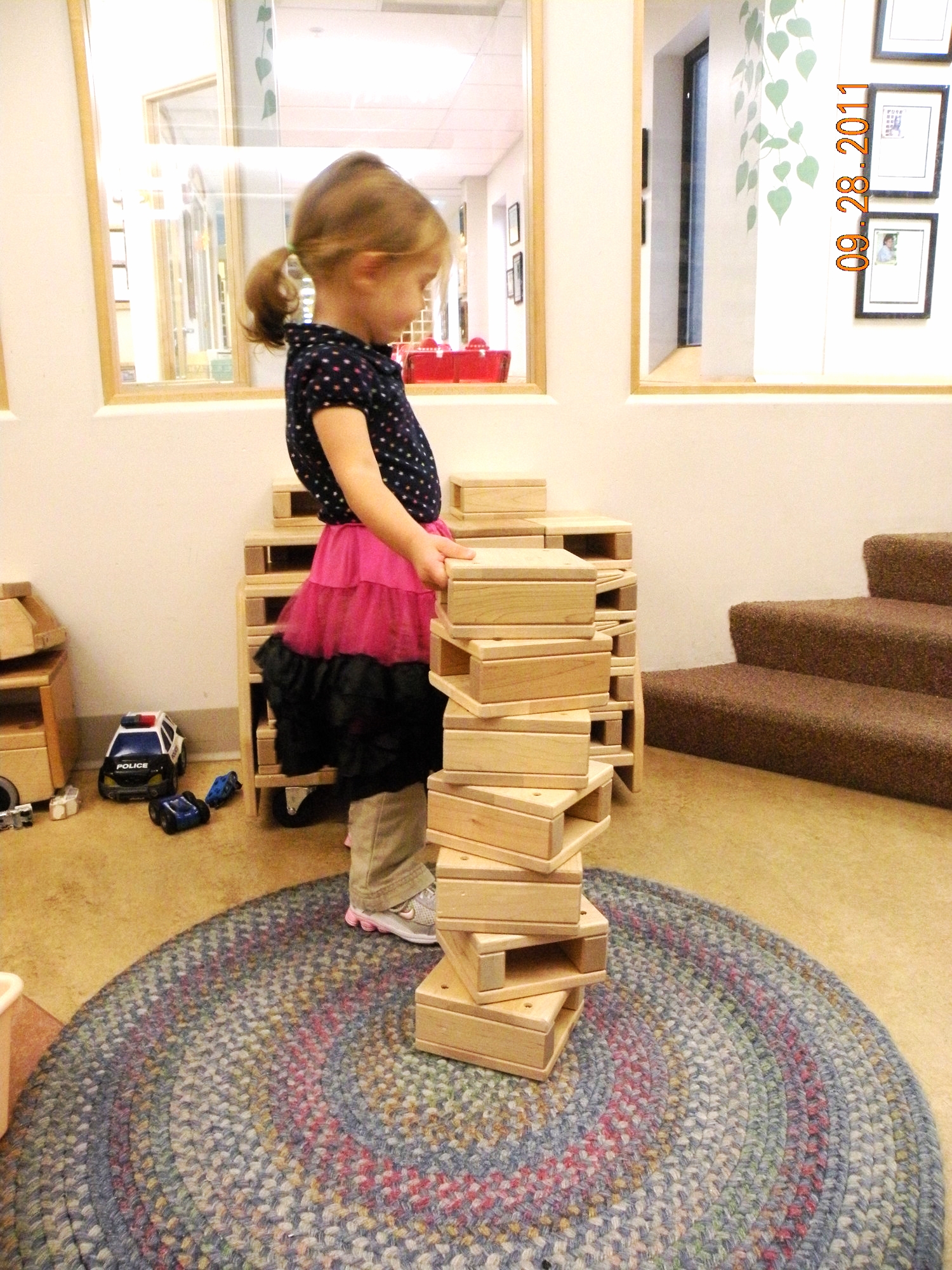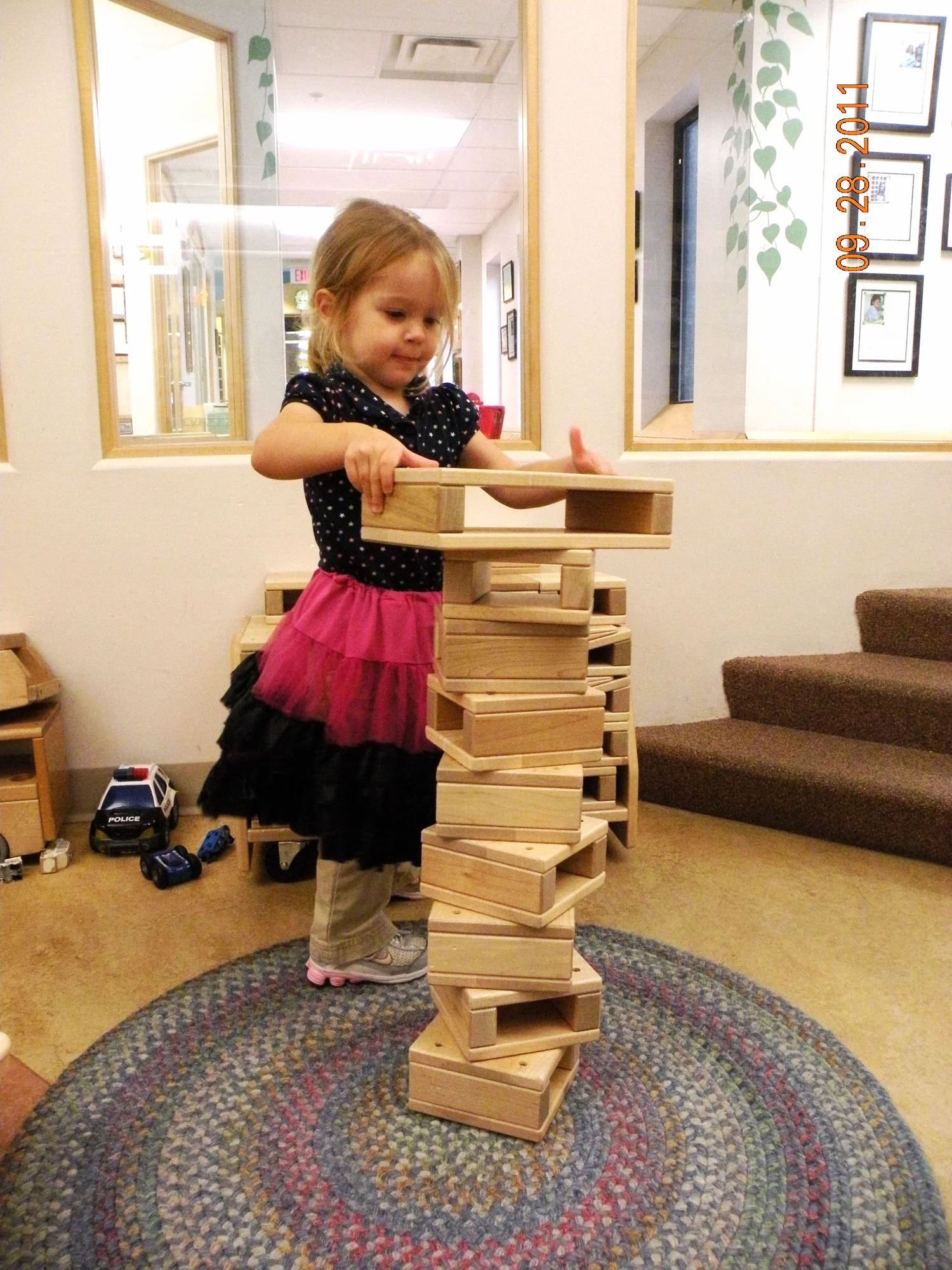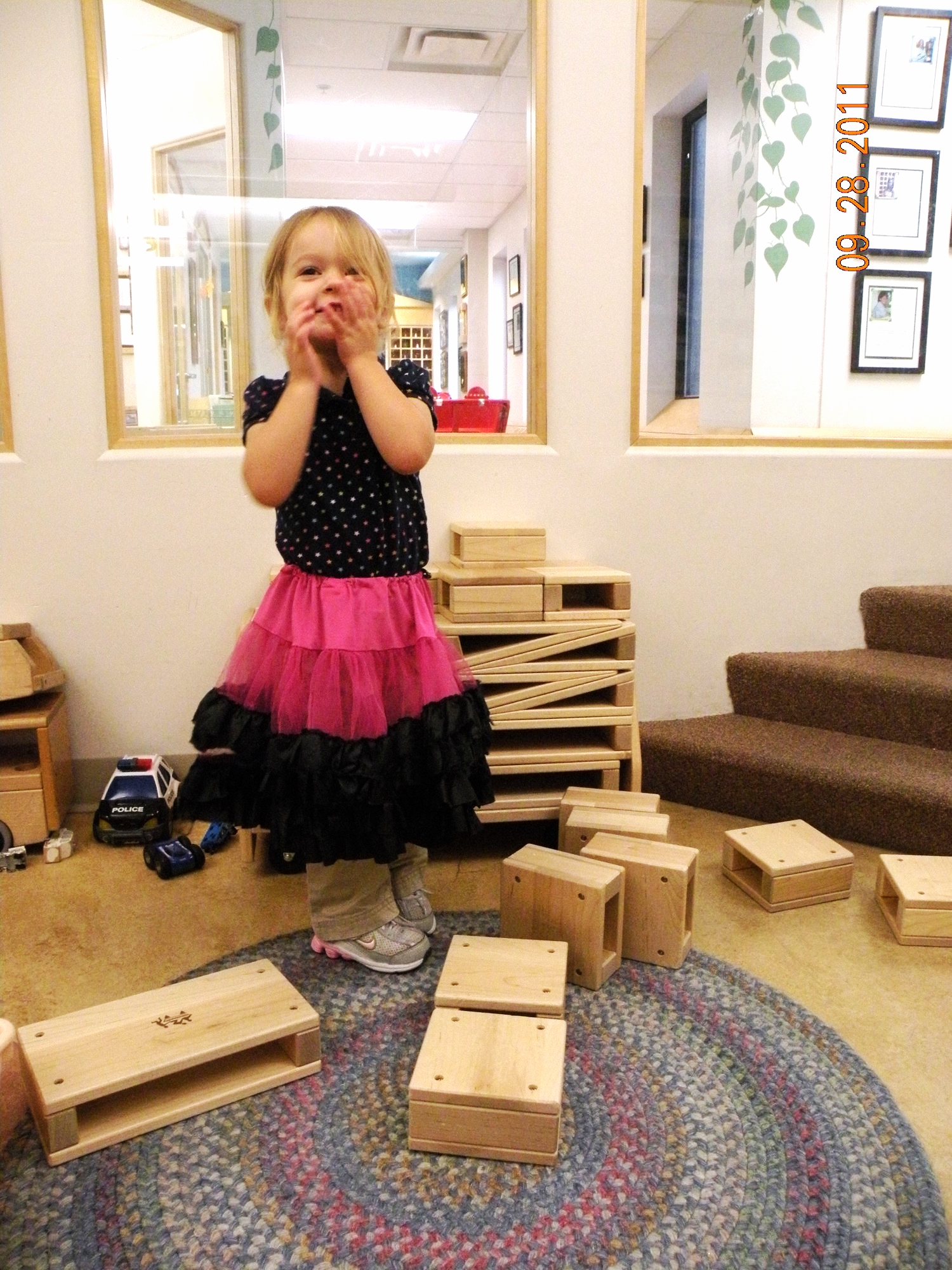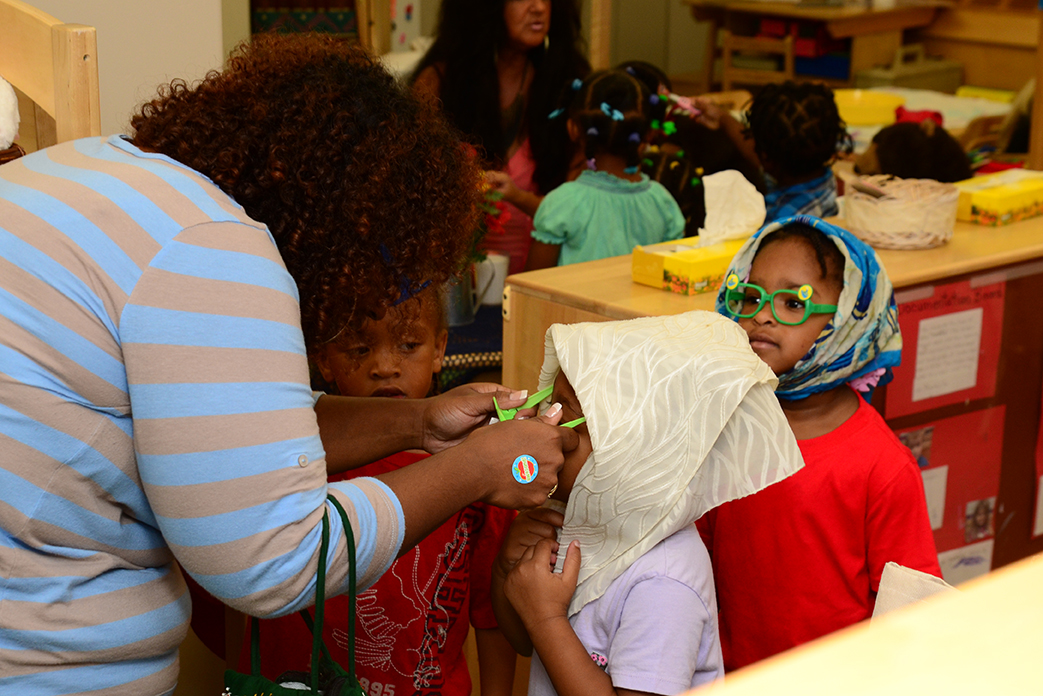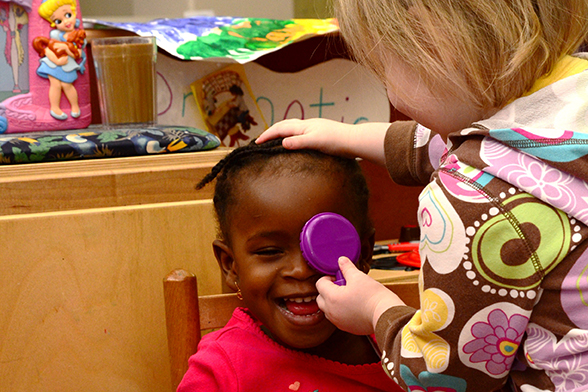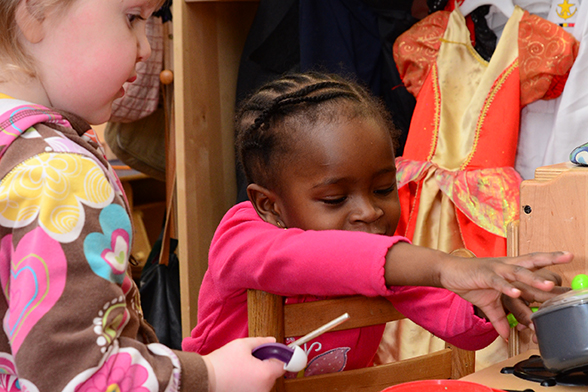Academics / Early Childhood / After School / Summer / Literacy / Math / Discovery / Enrichment / Special Events
Early Childhood Education
NURSERY
We now know that brain development is affected by experiences and that children’s learning changes the physical structure of their brains. We also know that for brain connections to become permanent, learning must be reinforced and that connections that are not made and used eventually disappear.
The development of building trusting relationships with the important adults in children’s lives greatly encourages brain development. Attachment, the processes of forming close personal relationships with others and resilience, the ability to recover from and manage the effects of stress, is at the core of development of trusting relationships for children. To encourage this development, primary care provider support, that is the assignment of a classroom teacher to support children’s primary care needs (feeding, diapering/toileting, and sleeping routines), is utilized until children are three. Assignments are made based on children’s preference of attachment.
Daily routines that are consistent and responsive build autonomy and trust and a secure sense of attachment in children. Attending to children ‘on demand’, that is when children express to us they need to have their needs met, best supports children’s development. It is through careful observation of children that care providers establish a strong bond with your child that allows them to meet their needs with love and attentiveness. Daily routines are most important during Separation and Reunions, and Daily Care Routines - Diapering and Toileting, Eating and Mealtimes, Sleeping and Naptime and when Getting Children Dressed.
TODDLERS
This is a time of tremendous development for children and we understand the importance of ensuring children develop to their fullest.
We know that by providing children with the opportunities for consistent routines and rich experiences, we can best support their learning so they become confident, inquisitive, independent life learners.
We recognize that caring, nurturing teachers are the core vehicle for young children to discover self and their immediate world.
● Social/Emotional – We recognize children as important, interesting and capable. We support children’s confidence by ensuring to create a responsive environment and through positive interactions, build trusting relationships. By sharing in the pleasure of children’s accomplishments and discoveries, we build positive images of self, understanding of feelings, ability to regulate and express emotions and support the capacity to build relationships with others.
● Cognitive – We understand that children are developing understandings about their world and will use what they learn to reason and problem solve. Consistent predictable routines, allows young children to anticipate events and develop understandings and begin to act intentionally. We also understand that rich, particularly sensory based, experiences encourage young children’s development most significantly.
● Language – We understand that language development is a major accomplishment for our youngest learners. We encourage children on the continuum of facial expressions, gestures, and crying to the development of verbal and sign language. We share in the pleasure of children’s communication efforts and through our interaction, modeling, and encouragement, guide children’s development and build their desire to communicate.
● Physical – We understand that children are gradually gaining control over their physical development. Young children develop at different rates, but learn to control their bodies in the same progression – head to toe and from their core to their extremities. We develop a safe, sensory-based environment where children have amble opportunities to move freely in different ways and a rich variety of materials to manipulate.
PRE-SCHOOL
There’s nothing quite like the mind of a child. We inspire children as learners and cultivate a love of learning. We encourage children to be creative, confident thinkers.
Rather than give children answers, we help children to construct their own theories, make predictions and test those theories. We encourage children, through process, to discover for themselves.
● Social/Emotional – We support child guidance strategies that promote self- regulation, independence, cooperation, and self-confidence; whereby children develop positive relationships with and among each other and build strong classroom communities. We know that if children cannot be engaged then they cannot learn, so we begin our work with children by creating emotional security, so that children can develop a sense of trust, competence and initiation.
● Cognitive – We promote children’s learning through observation, discovery, exploration and representation. Through studies children connect experiences and use important process skills. By exposing children to knowledge, we help them to make connections and construct their world.
● Language – We intentionally engage children in meaningful conversations about their experiences and ideas and encourage communication between peers. Each child is recognized as having a contribution to make to the classroom community and learning experiences.
● Physical – We provide a variety of physical activities to guide children to move their bodies purposefully. Fine motor skills include pre-literacy activities such as cutting, lacing, drawing, and process based writing. Gross motor skills include outdoor experiences that encourage strength, balance, and coordination.
Teachers are mindful of the classroom learning centers, ensuring that they are interesting, challenging and supportive of curriculum. Children can engage in the learning centers of their choice, work independently, or engage in cooperative projects. Most importantly the learning centers must encourage play and exploration and challenge children’s thinking.
PRE-KINDERGARTEN
We now know that brain development is critical until children are five. For pathways to become developed children need to be immersed in a rich environment that engages children and stimulates learning.
Children thrive with a sense of rhythm to their day. The structure of a child’s day is purposeful, yet predictable, so that children can feel secure, learn and grow. The structure must also be flexible so that children’s interests and temperaments can guide their daily adventures. The structure provides opportunity for children to work independently, in small groups, or as a classroom community. A child’s typical day includes Morning Exploration, Breakfast, Morning Meeting/Friendship Circle, Morning Exploration, Outdoor Play (Indoor Play in inclement weather), Literacy Circle, Story Time, Lunch, Nap, Afternoon Snack, Afternoon Activity/Friendship Circle, Afternoon Exploration, Outdoor Play, Story Time and Afternoon Exploration.
● Morning Meeting/Friendship Circle – Teachers introduce learning with children’s literature. Reading and Writing, as well as Math opportunities, as a part of every circle time.
● Morning and Afternoon Exploration – Teachers prepare independent materials that support children’s learning in Literacy, Math, Science Exploration and Social Studies concepts. Children have choice of activities that supports individual and group learning.
● Literacy Circle – Teachers prepare Literacy based materials that move children on the continuum of learning and ready children for Kindergarten.
Teachers continue their work with classroom learning centers, as children continue their development, with an emphasis on Kindergarten Readiness. To ready children for kindergarten, teachers provide emphasis in Literacy, Math, Science and Social Studies.
